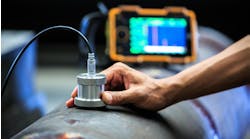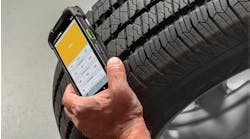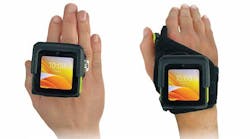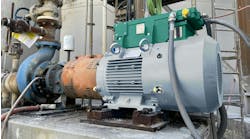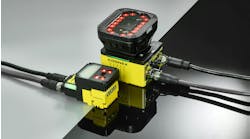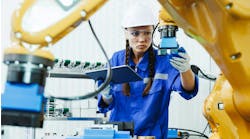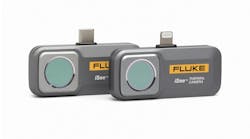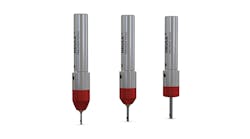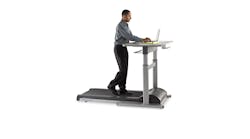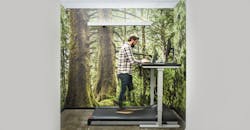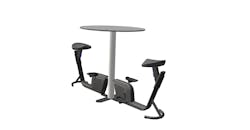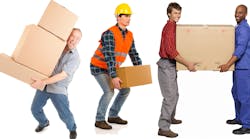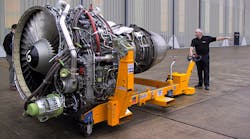See if this sounds familiar: In your 20s, you worked up a sweat on the factory floor, found time to play rec league hoops at night, and still had enough energy to chase your real passions on the weekends. Then thirty happens, you get a promotion and indentured to a desk, tied to more responsibility and probably a family. That favorite pair of jeans was too snug two years ago, and looking down at the bathroom scale is more depressing than seeing how old your favorite rock band got.
Well there’s only one thing to do. Get off your ass. Those are science’s words, not mine. A Mayo Clinic study finds that replacing sitting at a computer with walking on a treadmill for two to three hours a day can help you lose up to 40 to 60 lb/year. You still have a job to do, so the best way to achieve this weight loss, and gain in energy, is to get a treadmill desk.
They’re like regular treadmills, but they have a desk top that for your laptop or PC. They also electrically adjust to the optimal ergonomic height for your keyboard. Other differences include noise level, which is quieter as to not disrupt other office jockeys, and a much lower top speed, because typing becomes increasingly more difficult the faster you go.
A Miami University study found that “typing performance while walking [at 1.4 mph] was not different than seated typing performance.”
Why do you think this is an important tool at work, especially at the management level?
Schenk: We become more sedentary as we get promoted. On top of that we're less active than we were in our 20s. This is the most important time to keep yourself active and healthy.
NED: What is the next trend in working out at work?
Schenk: We recognize tread mill desks have some limitations, such as size and power, needing to plug into wall. We have one product close to release, an unplugged pedaling devices that can be used by individuals or used collaboratively.It's called the Duo, a round desk with two peddling stations.
The workspace is evolving. There are more huddled spaces, so we're coming up with devices that will be really be effective in layouts with smaller, common areas.
